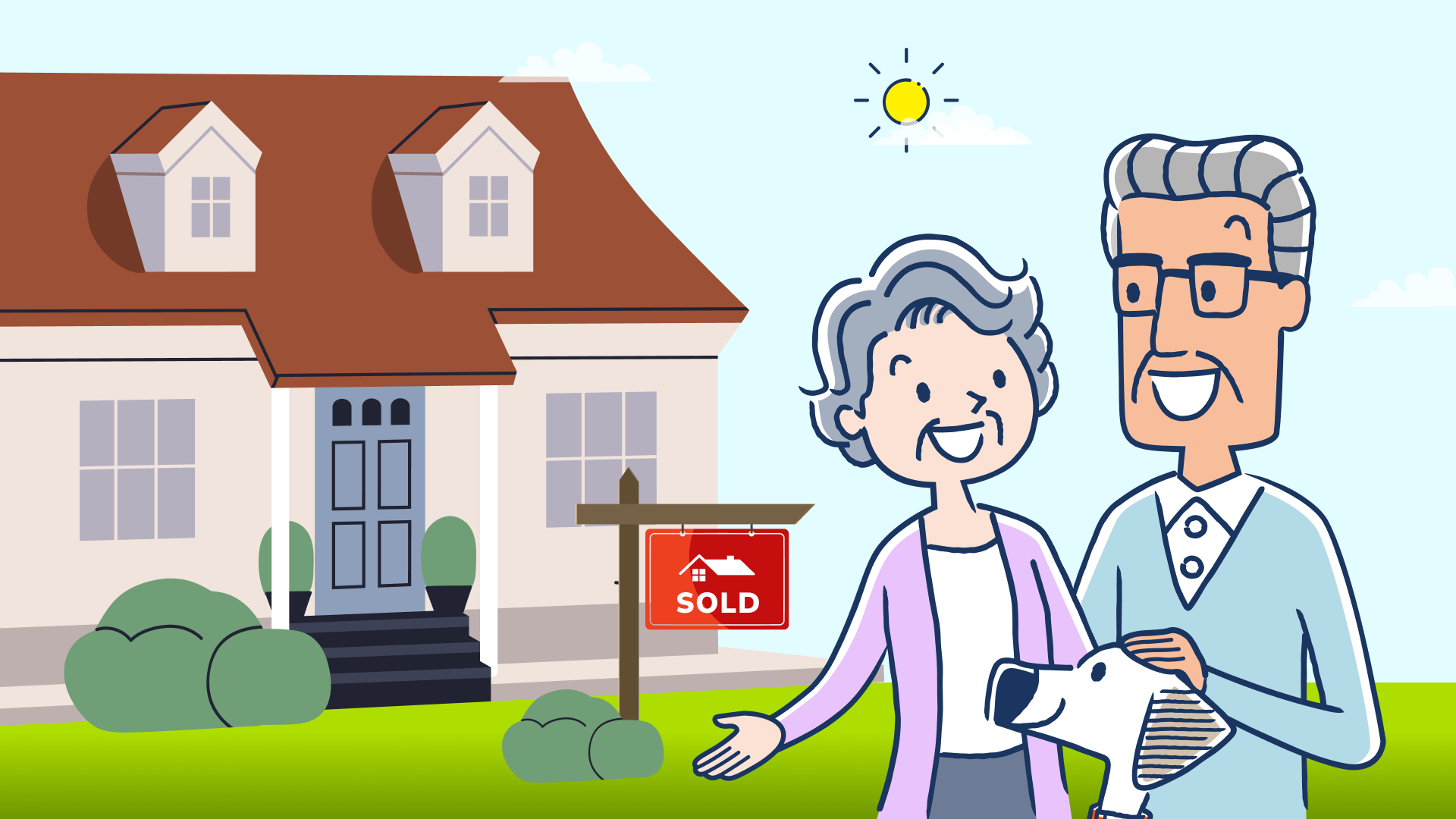Time to read : 4 Minutes
Older Aussies downsizing their homes is often hailed as the answer to problems – from how to fund aged care to the housing crisis. But the push ignores some of the hidden costs that can eat into your sale price.
For many, selling their large family home once the children have moved out makes sense. There’s no longer a need for so many bedrooms and house maintenance becomes more difficult with age.
Selling your old house and buying a smaller (and cheaper) place will also net you a nice profit, potentially enough to turbocharge your retirement. Win-win, right?
Well, not always...
For some there’s the emotional attachment to the home – it may have been in the family for generations.
While for others, they may be intending to leave the home to their children as an inheritance.
And then there are some people who simply don’t want to leave.
But there are also many unexpected costs that pop up when selling your home. These costs may drastically reduce the final sale price of your home and possibly defeat the purpose of downsizing in the first place.
What are the costs for preparing your home for sale?
Some of the first big bills you’ll encounter when downsizing are the costs for making your home presentable to buyers. You may be thinking your home is already presentable. But any real estate agent will tell you that paying to make your home look exactly the way the market wants it to look, can fetch you thousands extra in the final sale price.
Budgets for staging are as varied as homes themselves, but for an average three-bedroom in a capital city, you can expect to spend anywhere from $3,000-$10,000.
Speaking of real estate agents, unless you’re confident to sell your house privately, you’ll need one of these as well.
What are the agent fees?
Agents usually charge three types of fees:
Flat fee: a set fee paid after your home sells, not based on the sale price of your home.
Commission: sales commission to the agent of between 1.5% and 3.5% of the sale price of your home.
Bonuses: not always charged, but some high-end agents have bonus clauses in their offerings if the sale price reaches a certain benchmark. For example, the bonus may be 5% of any amount achieved above $1 million. So, if they can sell it for $1.2 million, the agent would get an extra $10,000.
What about inspection reports, conveyancing fees and taxes?
You’ve sold your house and found the perfect new place. Before you can even put an offer in though, it would be sensible to get a building inspection done. But this will be another added cost.
Previous research has shown an average pre-purchase building inspection in Australia costs between $500 to $750 in regional areas and between $800 and $1,200 in metropolitan areas.
Once your new dream home has passed the inspection and the seller has accepted your offer, there are conveyancing fees. These are unavoidable legal fees paid for the transfer of ownership of a property from one person to another.
There are a few different legal documents that need to be prepared to officially finalise a sale. These need to be completed by a licensed and accredited conveyancer or solicitor, who usually charge fees of between $800 and $2,000.
Then there’s stamp duty. Also known as ‘land transfer duty’ this is a tax charged by your state or territory when parcels of land change hands. Different jurisdictions have different stamp duty tax structures, but you can expect to pay between $30,000 and $40,000 on the sale of a $700,000 house.
What should you expect to pay for moving?
Once you’ve cleared the hurdles of selling your home and buying a new one. Then you’ve got to physically move. They say moving house is one of life’s most stressful events and even paying someone to do it for you doesn’t help!
Weekday prices for removalist services in a capital city range from approximately $130-$160 per hour, and $140-$200 per hour on a weekend – even more on a public holiday.
What happens to pension entitlements?
One aspect of downsizing that often gets overlooked is the impact it may have on your Age Pension entitlements.
The general rule is that the home you live in (your primary place of residence) is exempt from the Age Pension income and assets test. Your new home will not count towards the asset limits, but the extra cash you make from the sale of your original home will be.
So, if you sell your home for $1 million, then buy a smaller unit for $500,000, then that extra $500,000 will now count as an asset. This means you may no longer be eligible for the pension.
Bottom line
Like any major financial decision you’ll make, downsizing requires careful consideration and planning before taking the leap. It can be a great way to unlock equity in your home and get the retirement you want – but be aware that it can come with lots of hidden costs.
Go deeper:
How to be sure a downsizing decision leaves you happy, healthy and wealth(ier)
Are there any extra costs I should know about when buying a property?
